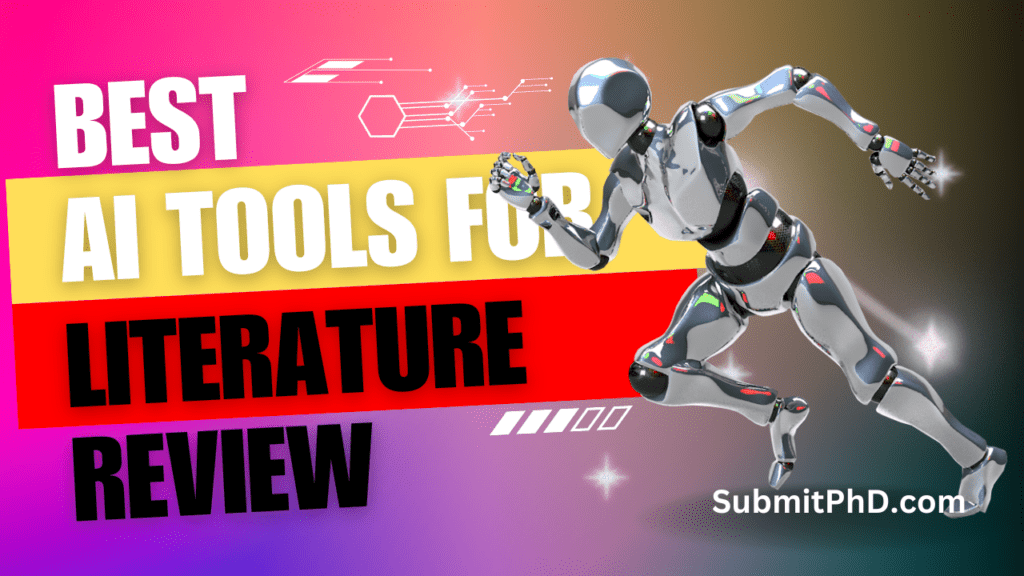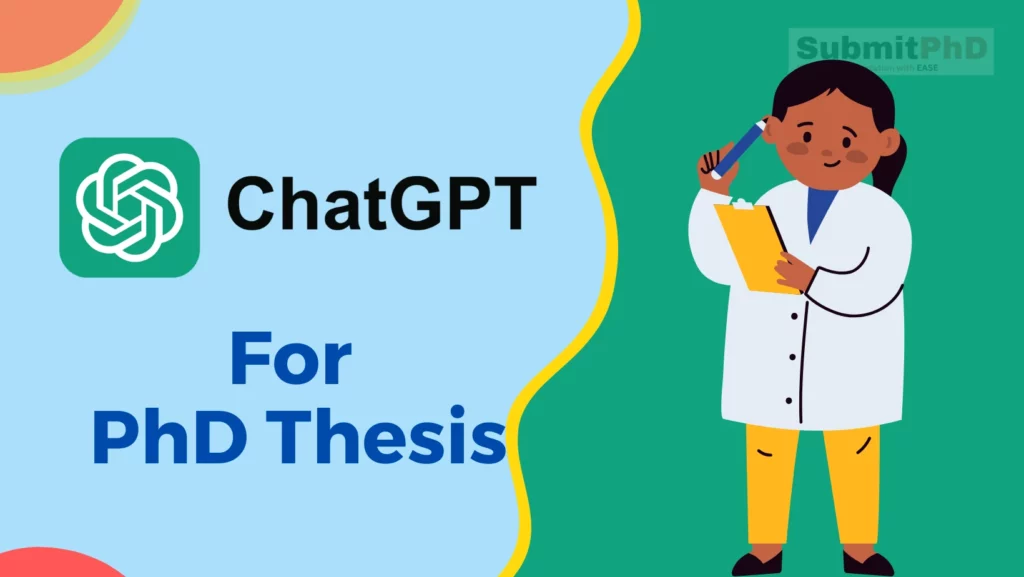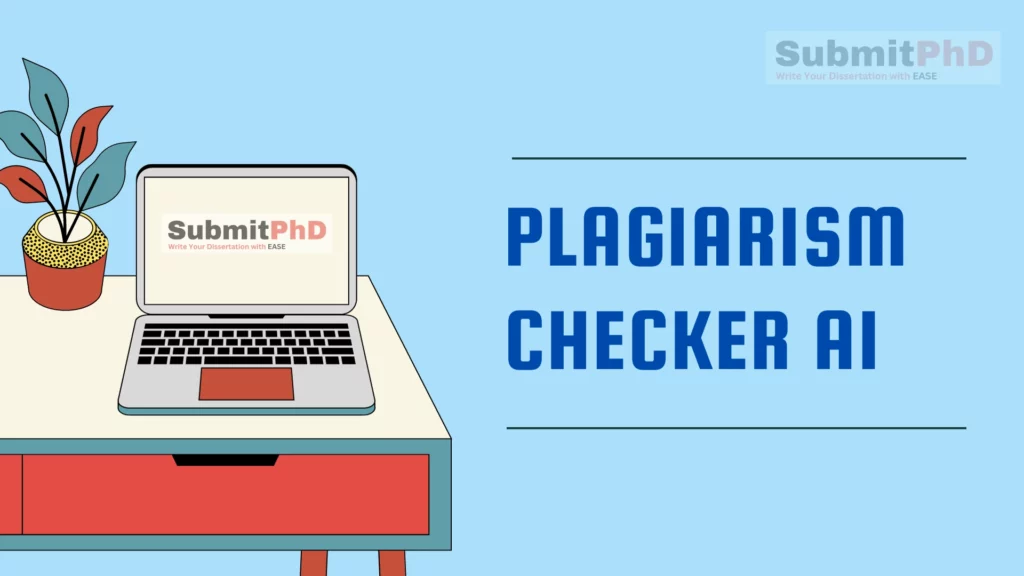

In today’s fast-paced world, where information is abundant and time is limited, the need for efficient and accurate literature review tools has grown immensely.
Thanks to advancements in artificial intelligence (AI), researchers and academics now have access to AI-powered platforms that streamline the process of conducting literature reviews.
These platforms not only save time but also enhance the quality of research by providing comprehensive insights and analysis.
In this article, we’ll explore the best AI-powered platforms for literature review that are making a significant impact in the academic and research communities.
Why AI Tools and Platforms?
Before delving into the top AI-powered tools and platforms for literature review, it’s important to understand why these platforms are gaining such prominence.
Traditional literature review processes can be incredibly time-consuming and often lead to information overload. With the exponential growth of academic papers and research articles, manually sifting through this vast sea of information becomes an arduous task.
This is where AI comes to the rescue, offering the ability to analyze and categorize an extensive amount of data within seconds.
Top AI-Powered Tools for Literature Review
The following AI-Powered Platforms and Tools are very useful for the literature review, not only for PhD and research papers but also for undergraduates and post-graduate dissertations.
1. Rayyan AI
Rayyan AI is a game-changer in the world of systematic reviews. With the might of AI at its core, this platform transforms the traditionally time-consuming review process.
By automating the screening and categorization of research papers, Rayyan AI empowers researchers to handle vast volumes of literature efficiently.
This means more time for critical analysis and interpretation, leading to more accurate and insightful reviews.
2. Jenni AI
Imagine having a tireless research assistant at your fingertips. Jenni AI offers precisely that. With AI-infused insights and recommendations, Jenni AI simplifies the research process.
It identifies relevant articles, assists in literature review tasks, and even summarizes content. In a world where time is precious, Jenni AI optimizes your research workflow.
3. SciSpace
SciSpace is your research companion in the digital age. With AI algorithms that understand your preferences, this platform curates personalized article recommendations.
Whether you’re in the realm of academia or industry, SciSpace ensures you stay abreast of the latest developments.
It is AI-driven approach tailors content suggestions to your specific interests, giving you an edge in your field.
4. Scinapse
Dive into research like never before with Scinapse. Its AI-powered prowess dissects research papers, uncovering trends and insights that might have been overlooked.
This platform goes beyond surface-level search, connecting the dots between articles that share conceptual ties. The result?
A deeper understanding of your field and the ability to make informed decisions.
5. Scite AI
Credibility matters in research, and Scite AI is here to ensure just that. By scrutinizing research citations using AI, it gauges the context in which papers are referenced.
This AI-powered analysis offers a clearer picture of a paper’s impact and relevance within the academic sphere.
For researchers seeking trustworthy sources, Scite AI is an invaluable companion.
6. Consensus
Collaborative writing is made seamlessly with Consensus. Driven by AI, this platform aids in organizing ideas, suggesting references, and refining the writing process.
It’s not just about words; Consensus enhances collaboration, ensuring a polished final output.
Research teams can harness AI to amplify their collective efforts.
7. Trinka
Elevate your writing with Trinka’s language-focused AI.
Beyond grammatical corrections, Trinka refines your academic writing style. For researchers striving to communicate effectively, Trinka’s AI algorithms provide valuable suggestions.
Your research paper not only becomes well-researched but also well-presented.
Also Read: How to Design Questionnaire for Research
8. Lateral AI
Expand your research horizons with Lateral AI’s AI-driven recommendations.
By suggesting related articles, this platform encourages interdisciplinary exploration.
Research is no longer confined to silos; Lateral AI promotes cross-disciplinary thinking by showcasing contextually relevant content.
Unveil the power of AI-driven search with Semantic Scholar. Natural language processing extracts the essence of research papers, delivering precise results.
For researchers seeking relevant articles swiftly, Semantic Scholar’s AI-enhanced capabilities refine the search process.
Collaborate seamlessly with Rax’s AI-driven collaboration platform. By analyzing research profiles, Rax identifies potential collaborators.
Whether you’re an academic or an industry expert, Rax’s AI simplifies the process of forming interdisciplinary teams, fostering innovation and knowledge exchange.
11. Iris AI
Dive into research exploration with Iris AI’s AI-powered curation. By comprehending the context of your research query, Iris AI delivers tailored article recommendations.
Your initial exploration becomes more focused, efficient, and rewarding with this AI-enhanced approach.
12. Research Rabbit
Research Rabbit AI is your dedicated digital assistant for navigating the vast landscape of information.
Like a knowledgeable companion, it harnesses the power of artificial intelligence to swiftly uncover valuable research insights, scholarly articles, and relevant data points.
With the Research Rabbit AI, you’ll leap through the depths of knowledge with precision and efficiency, making your research endeavors more fruitful and enjoyable.
How AI Transforms Literature Review
Data Collection and Organization
AI-powered platforms excel at collecting and organizing vast amounts of data.
They can scan through multiple databases, online journals, and repositories, ensuring researchers don’t miss any relevant information.
The AI algorithms categorize the data into topics, making it easier to navigate and find specific articles.
Semantic Analysis for Relevant Insights
AI’s semantic analysis capabilities are a game-changer. By understanding the context and meaning behind words, these platforms provide insights that go beyond keyword matching.
Researchers can discover articles that may not directly mention their search terms but are conceptually related.
Enhanced Search Capabilities
Traditional search engines might miss articles with synonyms or different phrasings. AI platforms overcome this limitation by recognizing synonymous terms and related concepts.
This means researchers get a more comprehensive view of the literature landscape.
Advantages of AI-Powered Literature Review
Time Efficiency and Productivity
One of the most significant advantages of AI-powered platforms is the time saved.
What might take weeks or even months to accomplish manually can now be done within hours.
This newfound efficiency allows researchers to allocate more time to actual analysis and interpretation.
Accurate and Comprehensive Analysis
AI’s ability to analyze a vast quantity of data ensures that researchers get a well-rounded and comprehensive understanding of their topic.
This accuracy leads to higher-quality research outcomes.
Identification of Emerging Trends
AI-powered platforms can identify emerging trends by analyzing the frequency of certain keywords or topics over time.
Researchers can stay ahead of the curve by recognizing shifts in research focus.
Considerations When Choosing an AI Platform
Compatibility and Integration
When selecting an AI platform, compatibility with existing tools and software is crucial. The platform should seamlessly integrate with popular reference management software and document repositories.
User-Friendly Interface
A user-friendly interface enhances the overall experience. Researchers should be able to navigate the platform easily and make the most of its features without a steep learning curve.
Customization and Flexibility
Different researchers have different requirements. A good AI platform should allow customization to tailor its functionalities to individual needs.
Addressing Concerns: Human Oversight and Bias
While AI offers remarkable capabilities, there are concerns about bias in search results and the lack of human oversight. Researchers should use AI-generated insights as a starting point and exercise critical thinking.
The Future of AI in Literature Review
As AI continues to evolve, we can expect even more sophisticated platforms that understand context with greater accuracy. These platforms might offer real-time collaboration features, further enhancing the research process.
Conclusion
AI-powered platforms have revolutionized literature review processes. With their ability to process vast amounts of data, provide relevant insights, and save researchers time, they are invaluable tools in the world of academia. By embracing AI, researchers can focus on what truly matters: advancing knowledge and contributing to their fields.
FAQs
Q1: Are these platforms suitable for all fields of research?
Yes, AI-powered literature review platforms are designed to be adaptable across various fields of research.
Q2: How accurate are the AI-generated insights?
AI-generated insights are highly accurate, but researchers should verify information for critical projects.
Q3: Can I still use traditional search methods alongside these platforms?
Absolutely, these platforms complement traditional methods and enhance the overall research process.
Q4: Will AI completely replace human researchers?
No, AI is a tool that aids researchers. Human insight and critical thinking remain indispensable.
Q5: How can I learn to use these platforms effectively?
Most AI-powered platforms offer tutorials and customer support to help users make the most of their features.


